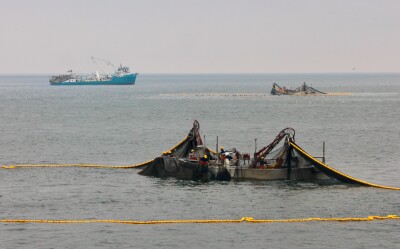WASHINGTON – When commercial fishing vessels unload their hauls on deck, crews usually gut their catch and put it on ice for the trip back to shore.
Then they do something that could land them in trouble under a 6-year-old law: They hose down the decks, sending the bloody mix of guts and scales into the water.
The Clean Boating Act of 2008 requires vessels to test deck-water runoff for contaminants. They also must sample seawater that is circulated into live wells for crabs and lobsters and then discharged back into the ocean, gulf or bay.
At least on paper.
The regulation isn't enforced because lawmakers have approved temporary exemptions sparing commercial fishermen from having to comply with a rule that many call onerous and expensive. The current exemption ends in December, and the industry is concerned congressional malaise and partisanship could stall legislation to extend it.
That would leave commercial operators on the hook for an expensive and time-consuming sampling regimen that they say could drive them out of business and reduce the fish available at local markets and restaurants.
Read the full story at Clarion-Ledger>>
Want to read more about the Incidental Discharge Act? Click here...






